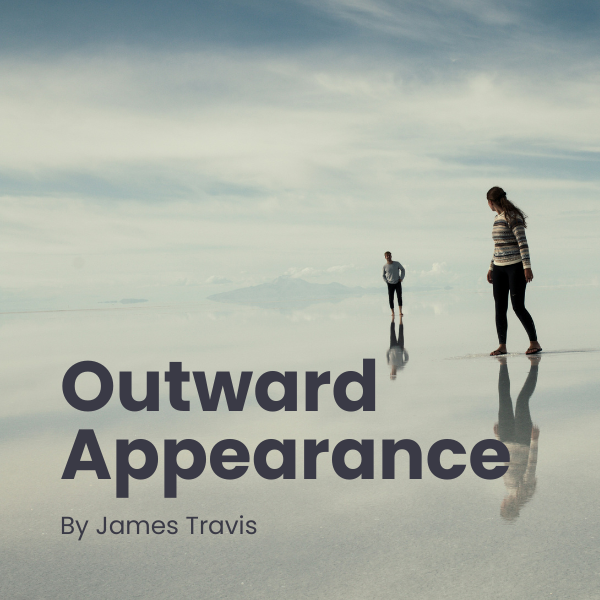
“…the Lord said to Samuel, “Do not look on his appearance or on the height of his stature, because I have rejected him. For the Lord sees not as man sees: man looks on the outward appearance, but the Lord looks on the heart.” (1 Samuel 16.7, emphasis added)
A few weeks ago at Saar Fellowship, we looked at Galatians 2.11-21. In summary, Paul confronts Peter about inconsistencies in his behaviour that devalue others in the gospel. In even fewer words, Peter was affected by outward appearance. Similarly, but not exactly the same, I recently heard a couple of people make the same base observation of others that Peter had:
“I know that people do/don’t…”
“I see/don’t see them…”
“I know that they are/aren’t…”.
A statement like this might sound harmless at first, perhaps it’s a careless throw-away comment. But, at the core, this is potentially a very harmful thing to say. When I hear things like this, even in casual conversation, it makes me uncomfortable, and I’m never sure what to do:
Should I ask a follow up question to dig deeper?
Should I overlook it all together, assuming that iit’s a throw-away, hollow comment?
Should I rebuke what might be a gossipy or judgemental statement?
Experience has taught me that, most of the time, the “I know…” part of “I know that…” is incorrect, meaning that what follows is then based on observation and personal perception. The more I think about that kind of comment or statement, the more it troubles me. Here’s a couple of reasons why;
First, and by no means something to skip past easily, is the accusatory nature of this statement.
One person has observed, perceived, and has now taken the role of accuser, claiming that others aren’t living as they should be. Scripture has much to say about those who accuse and this isn’t a role we want to find ourselves in (cf. Revelation 12.10). The beginning of Romans 2, for example, says the accuser is without excuse when they judge someone else and that they are, actually, condemning themselves. Jesus Himself said we ought to be careful in accusing and judging others to be coming up short if we’re doing the same (Matthew 7.1-3). We run the risk of becoming the pharisee in the parable of Luke 18.9-14 if we give too much importance to outward appearances (cf. James 2.1-5).
Second, focusing too much on outward appearances means that we find ourselves viewing those around us in a different way to how God does (see 1 Samuel above).
We’ve traded the view of the Father for the view of the flesh. Every single person that we see in a day is made in the image of God (Genesis 1.27). This means that each and every person our eyes land on during the day—and all those on which they don’t—has the mental, moral, and social potential to imitate God in His communicable attributes. By this I mean that, simply, each person we see has the potential to make good decisions, to have a conscience freed from the stain of sin and error, and to be brought back into right standing with God. By assigning value to how we think they are behaving and what we see them doing in a transitory moment removes all of their inherent worth, dignity, and value as a person and reduces them to the value of our own perception: a spectacular reduction which is almost certain to be wrong in some way (Jeremiah 17.9). Imagine trying to get to know someone from a series of photographs: it’s impossible. We see external snapshots of one another; God sees the big picture.
It’s hard: sometimes pointing out the errors we see around us can have tremendously positive results and sometimes we’re compelled to step in and speak up (Galatians 2.11-21, for example1). However, we need an extremely good relationship with someone before we’re able to do so. Without the iron-sharpening, proven-over-time connection, our observations are likely to both fall on deaf ears and, as we’ve said, be inaccurate. Pointing out perceived error based on outward appearance alone is a recipe for disaster.
Where do we go from here?
Simply, ask before you accuse. Learn before you burn. If, by outward appearance, you feel someone is missing the mark, then get to know that person. Build a relationship to the point where you can ask genuine, personal questions. Try, simply, and see as much of the picture as possible and not a snapshot.
Reference







